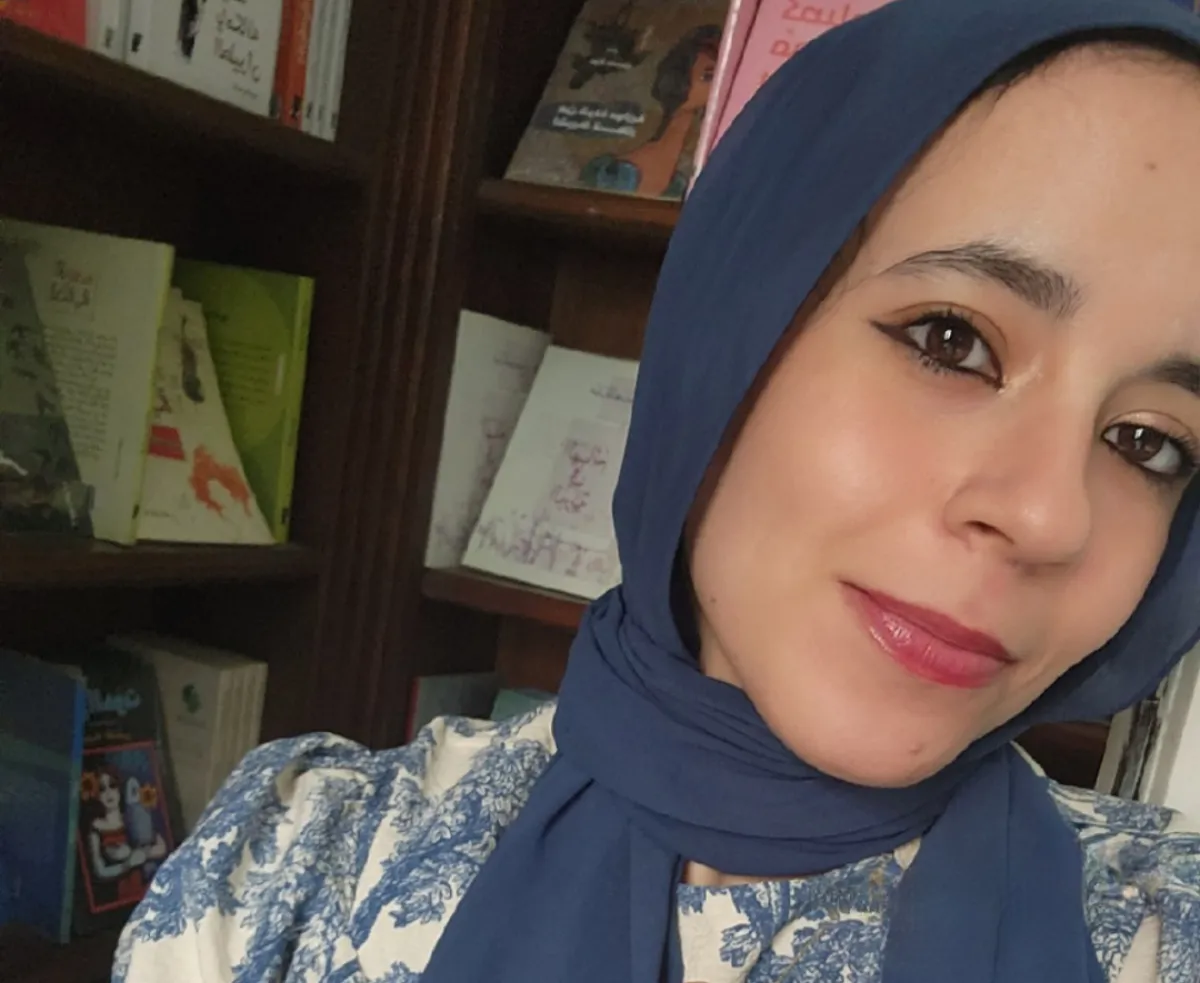The blood of the gazelle

Aya Gamal Mohey Eldeen is an Egyptian poet born in 1996. Her writing delves into the themes of the body, human fragility, and exile. She holds a Master's Degree in Law and a diploma in Legal Translation. Her work has been featured in Mada Masr, Raseef22 and Sard Adabi. Her debut poetry collection is forthcoming in 2026.
Everything that was beautiful, for lack of a womb to offer it,
became a poem... a cry... love.
- Forough Farrokhzad
The eyes sense in the distance
a fate, a wolf
Implore a source of sweetness,
shrug off a man from elsewhere
or a foul mouse.
The eyes learn the taste of hiding,
powdered with dust,
mingling night with day:
the dawn visits them,
light pours into them,
drop by drop.
A tender hand reaches,
veins raw,
with clay and blood of the gazelle:
it pulls out a black mass
growing in the hollow of the belly.
A white streak
playfully disappears, then returns.
Sighs unfold on her belly;
rings of white, in chains,
flowing in the dark film of night.
She raises her hands and says:
-as though bargaining or in prayer-
"Cut off my head and I'll offer you my blood,
give you embryos and chosen friends
loaves of bread and ghosts,
a drop of dew, and rings.
My body is an offering,
and my soul, redemption.
Are you satisfied?
Have I satisfied you?"
She implores:
give me a new childhood,
days that wash away faults,
and mothers who follow my trail
when I'm lost on the moors,
and hands have tempted me
(those hands that give and erase,
that know and soften)
Give me quietude and safety
my share of sleep,
and the cherry taste in my mouth that never fades.
Give me letters that don't unravel under the tongue,
and a tongue that knows the taste of delicious food,
delicious words and delicious kisses...
She stretches out her legs like a tree trunk,
rises from her bed,
heavy and alone,
in nightgowns that no hand has touched
but her own soft hands.
Red shirts,
yellow, purple:
shirts for lonely women,
without men waiting for them...
Women without men,
searching for each other's hands
their softness, their love,
warmth on the skin.
Women on balconies
cast their gazes
into the azure;
a lost bird,
the whiteness of the clouds,
and the shadow of a man
who, one night, left them
drowning in love and lack,
patience and despondency
with the promise of reunion, the hope of a rendezvous...
and he never returned.
Women who rely on chance or fate,
wish to stumble upon a handful of earth
or a living body.
+++
And in the morning too,
she washes her face with rain,
moistens her lips with honey,
solemnly unfurls herself
like a mother reaching out her breast
to a hungry moon
or a raging sea.
She spreads her bare back:
nakedness is also faith,
fusion with the earth,
adoration and asceticism,
union with the Other.
+++
She spins through the wheat,
like a red gazelle
or a fierce woman,
lights a candle and rubs an ear of corn,
devours a wolf,
worships a beautiful god
whom she loved from childhood,
her untouched childhood fell in love with him,
as did her untroubled youth,
in place of a man
of flesh and blood...
+++
At night, on a variegated carpet
of yellow and pomegranate,
she kneels, bends her knees devoutly,
gazes at a crescent moon
and a half- cloud,
and weeps to a whole God.
She seeks His favour, swears not to anger Him,
to spend the nights within His walls,
in the courtyard of His house, before His sanctuary,
wrapped in verses and angels,
green carpets
and green rosaries;
and to abandon the wide world
and go to Him,
instead of walking,
walking,
walking.
+++
Did you enjoy this text? If so, please support our work by making a one-off donation via PayPal, or by taking out a monthly or annual subscription.
Want to make sure you never miss an article from Literatur.Review again? Sign up for our newsletter here.
Poem from Aya Gamal Mohey Eldeen's forthcoming 2026 collection, Kullu l-Buyūti Lā Tasaʿunī (All Houses are too small for me).
(The English adaptation is based on the French translation from Arabic by Rita Barrota.)



